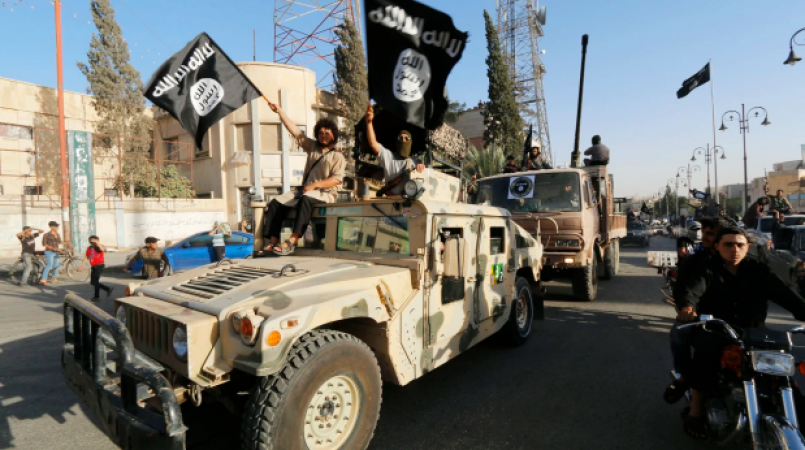
UNO: The UN chief has claimed in a recent report that clashes between al-Qaeda and Islamic State terrorist groups continue close to populated areas in Mali's northern Gao and Menaka regions, increasing insecurity there.
Clashes between al-Qaeda and Islamic State extremist groups are still taking place close to populated areas in Mali's northern Gao and Menaka regions, according to a new report released Monday by the UN chief.
According to Secretary-General Antonio Guterres, attacks by "violent extremist groups" against civilians account for the majority of human rights violations, and "the level and frequency of incidents of violence remain exceptionally high."
Also Read: China experiences its first population decline in more than 60 years
In a recent report, the UN chief claimed that fighting between al-Qaeda and Islamic State terrorist groups in the Gao and Menaka regions of northern Mali is taking place closer to populated areas, leading to unrest there.
In Mali's northern Gao and Menaka regions, clashes between al-Qaeda and Islamic State extremist groups are still taking place close to populated areas, according to a new report released Monday by the UN chief.
According to Secretary-General Antonio Guterres, the majority of human rights violations involve attacks by "violent extremist groups" against civilians, and "the level and frequency of incidents of violence remain exceptionally high."
Guterres said fighting between members of the Islamic State in the Greater Sahara and the al-Qaeda affiliate Jama'at Nusrat al-Islam wal-Muslimin, also known as JNIM, is still ongoing in the northern Gao and Menaka regions, where thousands have been killed. There are thousands of people in number. People have escaped violence and civilian casualties.
In October, he claimed, there were 397,000 to 442,620 displaced people in Mali, and the closure of 1,950 schools affected more than 587,000 children. He claimed that out of 53 lakh needy people, only 25 lakh are getting humanitarian aid.
Also Read: Church bombing claimed by Daesh in east Congo leaves 14 dead
The Secretary-General stressed that efforts to "ensure respect for human rights and international humanitarian law, promote social solidarity, address structural fragility and provide basic services" must be accompanied by campaigns to combat extremist groups to be successful. Must go together.
Since 2012, Mali has struggled to contain an insurgency by Islamic extremists. A military operation led by France helped remove extremist rebels from power in cities in northern Mali, but they later regrouped in the desert and began attacking the Malian army and its allies. Security has taken a turn for the worse, with attacks on civilians and UN peacekeepers.
Assimi Goïta, then an army colonel, participated in the August 2020 coup that overthrew the President of Mali. Goita was sworn in as leader of a transitional government in June 2021, following his second coup in nine months.
In August 2022, France, Mali's former colonial power, withdrew the last contingent of thousands of French troops amid tense exchanges with the transitional government.
To support Moscow's forces in the 11-month conflict, Goita decided to allow the deployment of Wagner Group, a private military contractor linked to the Kremlin, which also operates in Ukraine.
MINUSMA "documented violations of international humanitarian and human rights law allegedly committed during military operations carried out by Malian armed forces, including foreign security personnel and dozens of people," according to the report, which specifically included Wagner is not mentioned.
They claim that "some instances where foreign security personnel have violated human rights and international humanitarian law" were also recorded by the UN force, while conducting both air and ground military operations in the center of the country.
Presidential elections in Mali, which were planned for February 2022, will now take place in February 2024.
Progress in the establishment of the Single Electoral Management Body and a preliminary constitution draft were presented by Guterres. He urged the officials to expeditiously complete the election schedule announced in July 2022.
implementing a 2015 peace deal signed by the three parties – the government, a coalition of organizations known as the Coordination of Movements of Azad, which includes ethnic Arabs and Tuaregs who seek autonomy in northern Mali, and a pro-government militia What is known as the Platform - according to him, is equally important for the long-term stabilization of Mali.
But, as Guterres said, "the recent decision to bar the movements from participating in the implementation process is cause for grave concern.
Also Read: The top 1% of Indians own 40% of the country's wealth
The Secretary-General emphasized that the parties are ultimately responsible for taking the peace process forward, and urged them to "engage constructively with each other and the international mediation team to overcome existing obstacles".